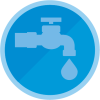EE in the Every Student Succeeds Act - New Opportunities in K-12 Education
In the September edition of our monthly webinar series: Bringing New Ideas and Innovation to the Field of EE, NAAEE's Director of Advocacy and Affiliate Relations, Sarah Bodor, spoke about the Every Student Succeeds Act and opportunities it provides for the field of EE.
Note: please login to eePRO (or create a free account) to access the links below.
JOIN THE DISCUSSION IN THE EEPRO ADVOCACY GROUP
The Every Student Succeeds Act (ESSA)
The ESSA bill includes, for the first time, language making environmental education and environmental literacy programs explicitly eligible for federal funds. The key language is found in two formula grant programs described in Title IV of the bill:
- Environmental education is eligible for funding under a “well-rounded education” grants program
- Environmental literacy programs are eligible for funding as part of the 21st Century Community Learning Centers program.
- The prioritization of STEM activities including “hands-on learning” and “field-based or service learning” to enhance understanding of STEM subjects may provide additional opportunities for environmental science education programs.
NAAEE will continue to analyze the full bill and develop communications to inform affiliates, EE providers, and state and local education agencies how the law may benefit their environmental literacy work.
Sarah Bodor
Before joining NAAEE as Director of Policy & Affiliate Relations in 2015, Sarah Bodor worked for the Chesapeake Bay Foundation, where she held a number of program management and leadership positions throughout the organization. She worked closely with state education agencies in Maryland, Pennsylvania, and Virginia to develop and pilot standards-based curricula and provide teacher professional development. Her background also includes communications and fundraising. In 2008, she served as the writer of Maryland’s Children in Nature Plan, which resulted in passage of Maryland’s environmental high school graduation requirement.
From 2008-2012, Sarah coordinated the national No Child Left Inside grassroots coalition of more than 2,200 organizations focused on generating public and private support for the development and implementation of state-wide environmental literacy plans. She monitors local, state, regional, and national advances in the integration of environmental education into K-12 public school curricula, and develops funding and programmatic strategy for the implementation of state and local environmental literacy plans.












